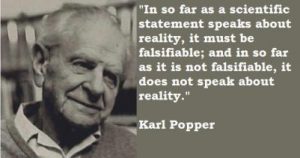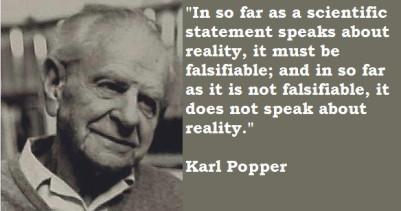
The principle of falsifiability was advanced by the 20th century Austrian-English philosopher, Karl Popper, to demarcate statements of science from statements of pseudoscience.The Falsification Principle states that all scientific hypotheses leave a possibility of an experimental outcome that could falsify it. If for instance, a hypothesis states that all metals expand upon the increase of ambient temperature, a single conclusive example of a metal that doesn’t react in the same manner would falsify the statement. A statement that does not extend a possible future condition that could go against it, is not a scientific statement. In other words, a scientific hypothesis should “stick its neck out” when it is framed. According to Popper, this ability of scientific statements to expose the condition of its own falsification is the essential feature of “true science”. Pseudosciences, on the contrary, do not expose themselves like this. Rather, they use explanations to justify the situations that have emerged contrary to their initial statement. Thus, pseudoscience would rather somersault with ad hoc or post hoc explanations than let itself be refuted by objective evidence.
Hits: 2732

